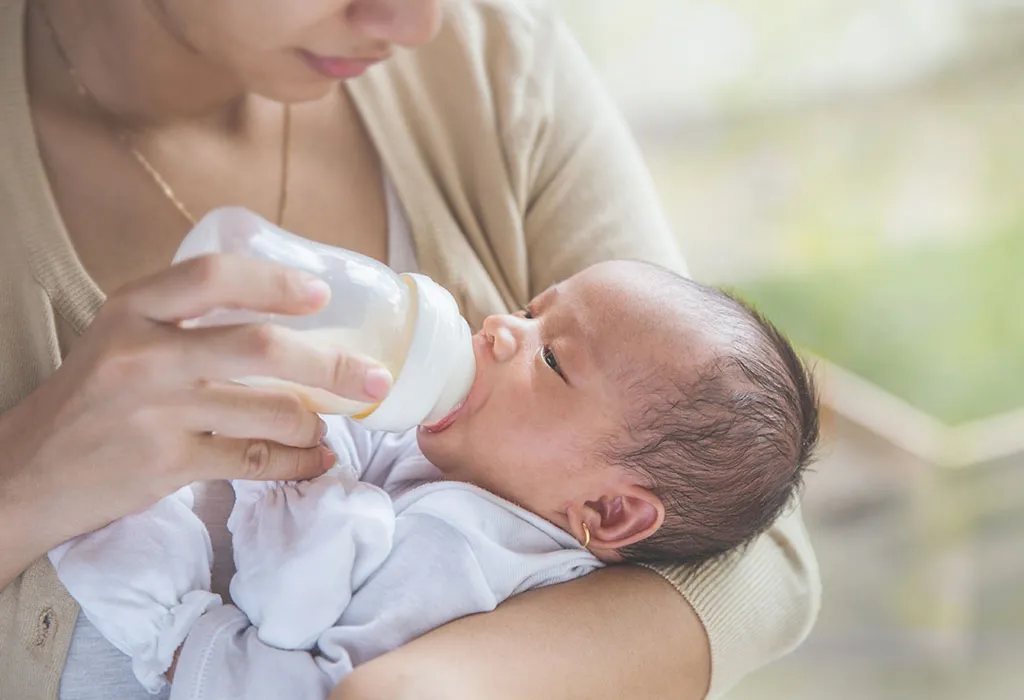Studies comparing breast feeding with bottle feeding show that
Home » Query » Studies comparing breast feeding with bottle feeding show thatYour Studies comparing breast feeding with bottle feeding show that images are ready. Studies comparing breast feeding with bottle feeding show that are a topic that is being searched for and liked by netizens now. You can Get the Studies comparing breast feeding with bottle feeding show that files here. Get all royalty-free photos and vectors.
If you’re looking for studies comparing breast feeding with bottle feeding show that pictures information linked to the studies comparing breast feeding with bottle feeding show that topic, you have come to the ideal site. Our site frequently gives you suggestions for viewing the maximum quality video and image content, please kindly hunt and locate more enlightening video content and images that fit your interests.
Studies Comparing Breast Feeding With Bottle Feeding Show That. 2-5 All of the scientific evidence regarding breastfeeding and morbidity in healthy full-term infants is based on observational studies because it is neither feasible nor ethical to randomly assign such infants to be. 1825 Both breast- and bottle-feeding mothers considered that hospital midwives spent more time with breastfeeding mothers than bottle-feeding mothers. Adds brain power. When it comes to deciding breastfeeding vs bottle feeding the USDA and WIC programs state that mothers are strongly encouraged to breastfeed their infants unless there is a medical reason not to.
 Pdf Breast Feeding Twins And High Multiples From researchgate.net
Pdf Breast Feeding Twins And High Multiples From researchgate.net
Using a double electric breast pump can help you collect more milk in. If your baby has trouble latching on to the breast or if you and your family have a preference for bottle-feeding you can exclusively bottle-feed your baby breast milk. B breast-feeding is recommended for about half of all mothers. D breast-fed babies have fewer allergies and stomach aches. Only breastfed infants were included with no comparative formula-fed group. Pump as often as you would feed your baby from the breast.
Some studies have suggested that.
But we found that there are serious issues with these conclusions. But we found that there are serious issues with these conclusions. Many mothers who bottle-fed their babies reported that they were not given adequate information from healthcare providers. Breastfeeding vs Bottle Feeding Formula. Judith Cormier Nursing 35510 Perinatal Nursing Department of Nursing St. Numerous research studies have been conducted and the results have varied.
 Source: researchgate.net
Source: researchgate.net
When it comes to deciding breastfeeding vs bottle feeding the USDA and WIC programs state that mothers are strongly encouraged to breastfeed their infants unless there is a medical reason not to. In mixed feeding bottle feeding compared to breastfeeding showed the same number of sucks but fewer and shorter pauses both at. Judith Cormier Nursing 35510 Perinatal Nursing Department of Nursing St. Few studies make this distinction despite increasing trends in milk expression. When they looked at data across all families breast-feeding had better outcomes than bottle-feeding in factors like BMI hyperactivity math skills reading recognition vocabulary word.
 Source: researchgate.net
Source: researchgate.net
Breast Feeding And Bottle Feeding 2724 Words 11 Pages. Question 220 Studies comparing breast-feeding to bottle-feeding show that _____. Breast Feeding And Bottle Feeding 2724 Words 11 Pages. Breastfeeding vs Bottle Feeding Formula. A focus on responsive bottle-feeding stems from evidence that caregivers may feed in response to amount of milk or formula in the bottle instead of in response to infant hunger and satiation cues.
 Source: healthline.com
Source: healthline.com
When it comes to deciding breastfeeding vs bottle feeding the USDA and WIC programs state that mothers are strongly encouraged to breastfeed their infants unless there is a medical reason not to. The effect of breastfeeding in protecting against infection is more striking and thus easier to demonstrate in settings where poverty malnutrition and poor hygiene are prevalent. These infants had intermediate BMI z scores and weight gain velocities that were higher than infants fed exclusively at the breast but lower than infants. Francis Xavier University October 7 2014 Abstract Research has shown that nursing implications have an impact on breast-feeding and bottle-feeding. Bottle-feeding resulted in longer sucking bursts and more sucks per burst compared with breast-feeding in each month p 005.
 Source: researchgate.net
Source: researchgate.net
A recent improvements in formula make bottle-feeding more nutritious than breast milk. D breast-fed babies have fewer allergies and stomach aches. The increase in the amount of ingested milk with maturation resulted from an increase in bolus volume per minute as well as the higher number of sucks continuously for both breast- and bottle-fed infants. Many mothers who bottle-fed their babies reported that they were not given adequate information from healthcare providers. Only breastfed infants were included with no comparative formula-fed group.
 Source: researchgate.net
Source: researchgate.net
The effect of breastfeeding in protecting against infection is more striking and thus easier to demonstrate in settings where poverty malnutrition and poor hygiene are prevalent. Question 18 1 point Studies comparing breast-feeding to bottle-feeding show that. The feeding method was not provided 19 22 35 36. Ob breast-feeding is recommended for about half of all mothers. Numerous research studies have been conducted and the results have varied.
 Source: researchgate.net
Source: researchgate.net
1825 Both breast- and bottle-feeding mothers considered that hospital midwives spent more time with breastfeeding mothers than bottle-feeding mothers. D breast-fed babies have fewer allergies and stomach aches. 2-5 All of the scientific evidence regarding breastfeeding and morbidity in healthy full-term infants is based on observational studies because it is neither feasible nor ethical to randomly assign such infants to be. Question 18 1 point Studies comparing breast-feeding to bottle-feeding show that. Pump as often as you would feed your baby from the breast.
 Source: researchgate.net
Source: researchgate.net
Breast Feeding and Bottle Feeding in Relation to Nursing Practice By Stephen Samson 201201274 Presented to Dr. 2-5 All of the scientific evidence regarding breastfeeding and morbidity in healthy full-term infants is based on observational studies because it is neither feasible nor ethical to randomly assign such infants to be. In particular this targeted nutrition education could focus how to be responsive to infant hunger and satiation cues during bottle-feeding so that infants are not given too much formula andor expected to empty the bottle at every feed for example paced bottle-feeding 50. The feeding method was not provided 19 22 35 36. Bottle-feeding resulted in longer sucking bursts and more sucks per burst compared with breast-feeding in each month p 005.
 Source: researchgate.net
Source: researchgate.net
Numerous research studies have been conducted and the results have varied. The increase in the amount of ingested milk with maturation resulted from an increase in bolus volume per minute as well as the higher number of sucks continuously for both breast- and bottle-fed infants. Study after study comparing breastfed and formula fed infants seem to show that breastfed babies had superior IQs and suffered less illness. When they looked at data across all families breast-feeding had better outcomes than bottle-feeding in factors like BMI hyperactivity math skills reading recognition vocabulary word. 1825 Both breast- and bottle-feeding mothers considered that hospital midwives spent more time with breastfeeding mothers than bottle-feeding mothers.
 Source: parenting.firstcry.com
Source: parenting.firstcry.com
Breast-feeding is recommended for about half of all. Twenty studies were excluded after full-text review for the following reasons. 2-5 All of the scientific evidence regarding breastfeeding and morbidity in healthy full-term infants is based on observational studies because it is neither feasible nor ethical to randomly assign such infants to be. But we found that there are serious issues with these conclusions. Question 18 1 point Studies comparing breast-feeding to bottle-feeding show that.
 Source: unitypoint.org
Source: unitypoint.org
Question 18 1 point Studies comparing breast-feeding to bottle-feeding show that. Body composition was determined by using skinfold thickness only 21 26 30. In mixed feeding bottle feeding compared to breastfeeding showed the same number of sucks but fewer and shorter pauses both at. Only breastfed infants were included with no comparative formula-fed group. Study after study comparing breastfed and formula fed infants seem to show that breastfed babies had superior IQs and suffered less illness.
 Source: healthline.com
Source: healthline.com
Only breastfed infants were included with no comparative formula-fed group. The feeding method was not provided 19 22 35 36. Recent improvements in formula make bottle-feeding more nutritious than breast milk C. Breast-fed babies have fewer allergies and stomach aches Answers. Ultimately the decision to breastfeed vs bottle feed is made by the parents but parents should strongly.
 Source: expectingscience.com
Source: expectingscience.com
There are pros and cons for each category. When it comes to deciding breastfeeding vs bottle feeding the USDA and WIC programs state that mothers are strongly encouraged to breastfeed their infants unless there is a medical reason not to. Breast-fed babies have fewer allergies and stomach aches Answers. 2-5 All of the scientific evidence regarding breastfeeding and morbidity in healthy full-term infants is based on observational studies because it is neither feasible nor ethical to randomly assign such infants to be. Few studies make this distinction despite increasing trends in milk expression.
 Source: breastfeeding.support
Source: breastfeeding.support
Only breastfed infants were included with no comparative formula-fed group. In mixed feeding bottle feeding compared to breastfeeding showed the same number of sucks but fewer and shorter pauses both at. Breast-feeding should end as soon as a baby gets a tooth B. There are pros and cons for each category. Some studies have suggested that.
 Source: americanpregnancy.org
Source: americanpregnancy.org
Breast-feeding A debate has been going on for decades concerning the benefits of bottle-feeding vs. There are pros and cons for each category. Studies comparing breast-feeding to bottle-feeding show that. A breast-fed babies have fewer allergies and stomachaches. In mixed feeding bottle feeding compared to breastfeeding showed the same number of sucks but fewer and shorter pauses both at.
 Source: unicef.org.uk
Source: unicef.org.uk
Breast-fed babies tend to not be overfed in the same way as bottle-fed babies may be Lawrence said. Adds brain power. Only breastfed infants were included with no comparative formula-fed group. When they looked at data across all families breast-feeding had better outcomes than bottle-feeding in factors like BMI hyperactivity math skills reading recognition vocabulary word. Bottle-feeding resulted in longer sucking bursts and more sucks per burst compared with breast-feeding in each month p 005.
 Source: theguardian.com
Source: theguardian.com
D breast-fed babies have fewer allergies and stomach aches. Infants aged 21-28 days exclusively bottle-fed showed fewer sucks and the same number of pauses but of longer duration compared to breastfeeding. Studies comparing breast-feeding to bottle-feeding show that. Twenty studies were excluded after full-text review for the following reasons. A focus on responsive bottle-feeding stems from evidence that caregivers may feed in response to amount of milk or formula in the bottle instead of in response to infant hunger and satiation cues.
 Source: independent.co.uk
Source: independent.co.uk
Few studies make this distinction despite increasing trends in milk expression. Judith Cormier Nursing 35510 Perinatal Nursing Department of Nursing St. 1825 Both breast- and bottle-feeding mothers considered that hospital midwives spent more time with breastfeeding mothers than bottle-feeding mothers. Breast-feeding A debate has been going on for decades concerning the benefits of bottle-feeding vs. Breast-fed babies have fewer allergies and stomach aches Answers.
 Source: researchgate.net
Source: researchgate.net
A recent improvements in formula make bottle-feeding more nutritious than breast milk. The effect of breastfeeding in protecting against infection is more striking and thus easier to demonstrate in settings where poverty malnutrition and poor hygiene are prevalent. There are pros and cons for each category. B breast-feeding is recommended for about half of all mothers. Breast-fed babies have fewer allergies and stomach aches Answers.
This site is an open community for users to do sharing their favorite wallpapers on the internet, all images or pictures in this website are for personal wallpaper use only, it is stricly prohibited to use this wallpaper for commercial purposes, if you are the author and find this image is shared without your permission, please kindly raise a DMCA report to Us.
If you find this site beneficial, please support us by sharing this posts to your favorite social media accounts like Facebook, Instagram and so on or you can also save this blog page with the title studies comparing breast feeding with bottle feeding show that by using Ctrl + D for devices a laptop with a Windows operating system or Command + D for laptops with an Apple operating system. If you use a smartphone, you can also use the drawer menu of the browser you are using. Whether it’s a Windows, Mac, iOS or Android operating system, you will still be able to bookmark this website.